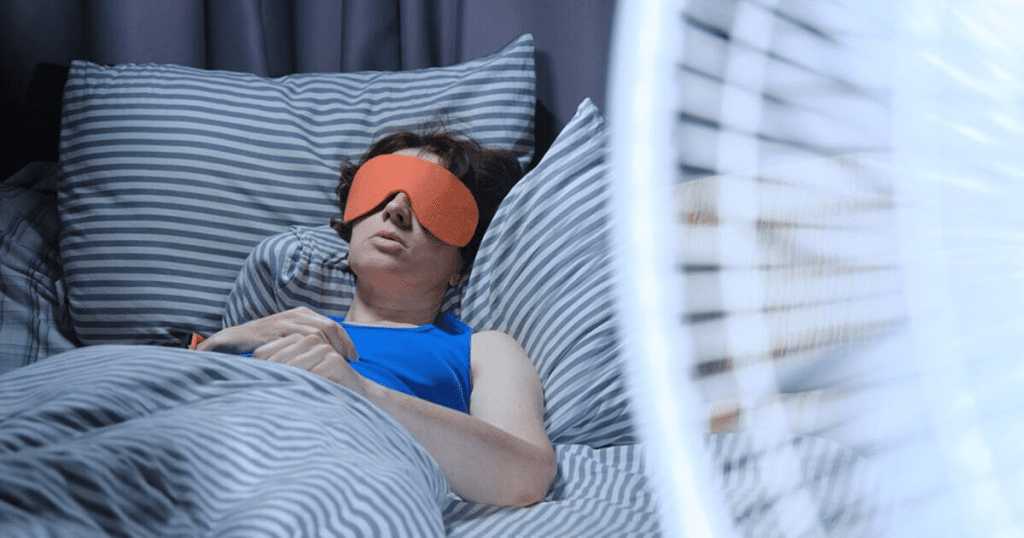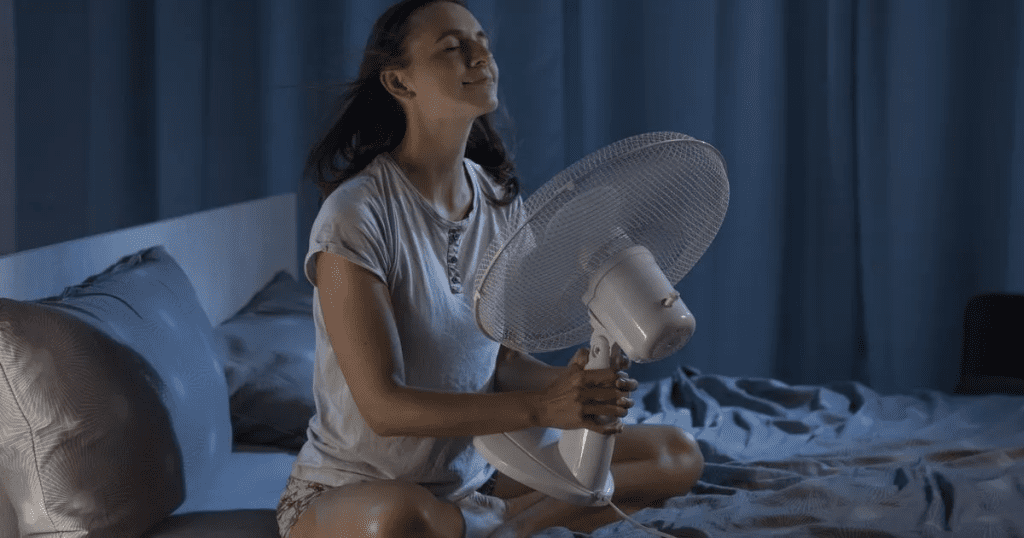When it comes to sleep habits, everyone has their quirks. My nana, for instance, insists on sleeping with a fan on, even during the chillier months of November and December. At first glance, it might seem harmless—just a matter of personal comfort. But as temperatures drop, this habit raises some concerns. Let’s dive into why Nana’s love for her fan might not be the healthiest choice and explore some potential alternatives.
The Comfort of Sleeping with a Fan

There’s no denying the appeal of a fan during sleep. Many people rely on the soft hum of a fan as white noise to block out other sounds. It’s like a lullaby for adults, drowning out barking dogs, passing cars, or creaky floors. The gentle airflow also creates a sensation of fresh air, making the room feel less stuffy. For Nana and others like her, the fan isn’t just a comfort—it’s part of their routine, like a favorite bedtime story.
The Health Risks of Using a Fan in Cold Weather
While a fan can enhance comfort, its downsides during colder months are worth noting. Sleeping with a fan running in November and December could pose risks, especially for older individuals.
- Dry Skin and Irritated Sinuses: Fans can lower the humidity in a room, leading to dry skin, parched nasal passages, and itchy eyes. This dryness can irritate respiratory tracts and exacerbate conditions like allergies or asthma.
- Chilled Muscles and Joint Pain: The constant breeze might cause muscles to stiffen or worsen arthritis symptoms. For Nana, this could mean waking up sore and achy.
- Disrupted Sleep Patterns: While cool temperatures are ideal for sleep, excessively cold air can make it hard to stay comfortable. A chilly room could lead to tossing, turning, and restless nights.
The Role of Temperature in Sleep Quality
Research shows that a cooler sleeping environment helps the body regulate its core temperature, promoting deeper sleep. Experts recommend keeping bedroom temperatures between 60-67°F (15-19°C). However, when outdoor temperatures dip in late autumn and early winter, using a fan can make the room too cold, potentially disrupting sleep rather than enhancing it.
How Fans Affect Humidity and Respiratory Health
Fans can alter the air’s humidity, which can be helpful in summer but problematic in winter. Lower humidity levels can dry out mucous membranes in the nose and throat, making them more susceptible to irritants and infections. For Nana, this could increase the chances of catching a cold or experiencing respiratory discomfort.
The Double-Edged Sword of White Noise
White noise from a fan can mask disturbances and create a calming environment. However, if the fan’s noise level is too high, it might shift from soothing to annoying, impacting sleep quality. Finding the right balance is essential for restful sleep.
Alternative Ways to Stay Comfortable Without a Fan

If Nana’s fan habit is causing concern, there are alternative methods to create a comfortable sleeping environment:
- Humidifiers: These can add moisture to the air, preventing dryness in the skin, eyes, and nasal passages.
- White Noise Machines: These devices offer the same calming effect as a fan without the airflow.
- Thermal Bedding: Layered blankets, flannel sheets, and cozy duvets can regulate body temperature without over-relying on room temperature.
- Adjustable Sleepwear: Wearing breathable, insulated sleepwear can help Nana stay warm without feeling overheated.
Expert Tips for a Better Night’s Sleep
Sleep specialists emphasize the importance of striking a balance between comfort and health. Maintaining an ideal bedroom temperature and addressing individual health needs can make a big difference. If Nana feels the fan helps her relax, running it at a lower speed or on a timer could reduce the potential downsides.
Personal Preferences vs. Practical Choices

Ultimately, sleep habits are deeply personal, and what works for one person might not suit another. For Nana, the fan might represent more than just air circulation—it could be a source of emotional comfort. Encouraging small adjustments rather than abrupt changes can help maintain her routine while safeguarding her health.
Conclusion: Striking the Right Balance
At the end of the day, Nana’s habit of sleeping with a fan in November and December isn’t inherently bad—but it’s important to consider the potential health risks. By making a few tweaks, like incorporating a humidifier or setting the fan on a timer, she can enjoy the comfort she craves without compromising her well-being. After all, good sleep isn’t just about habits—it’s about finding the sweet spot between comfort and care.


